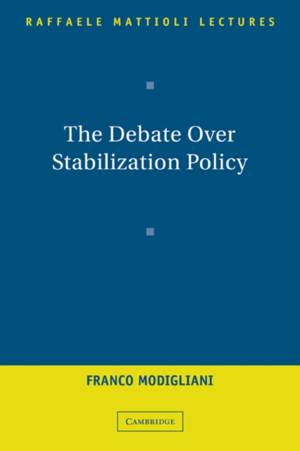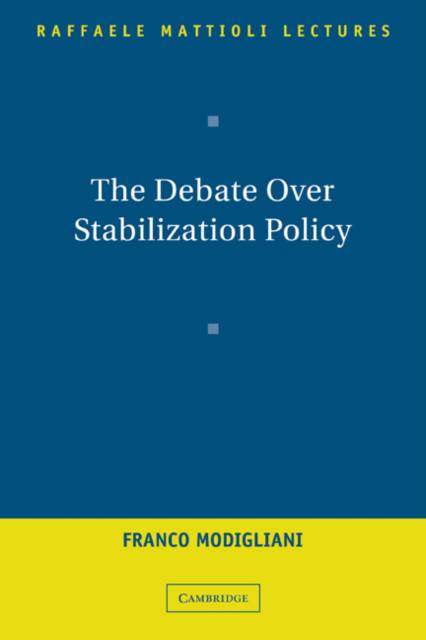
Door een staking bij bpost kan je online bestelling op dit moment iets langer onderweg zijn dan voorzien. Dringend iets nodig? Onze winkels ontvangen jou met open armen!
- Afhalen na 1 uur in een winkel met voorraad
- Gratis thuislevering in België vanaf € 30
- Ruim aanbod met 7 miljoen producten
Door een staking bij bpost kan je online bestelling op dit moment iets langer onderweg zijn dan voorzien. Dringend iets nodig? Onze winkels ontvangen jou met open armen!
- Afhalen na 1 uur in een winkel met voorraad
- Gratis thuislevering in België vanaf € 30
- Ruim aanbod met 7 miljoen producten
Zoeken
Omschrijving
This 1986 book examines some of the main issues that have characterized macroeconomics: the debate between 'monetarists' and 'Keynesians'; the response to demand shocks and supply shocks, by which the monetary authorities control aggregrate nominal income and the use and relevance of the money supply as a target; and the consumption function and the determinants of wealth. It shows that Keynesian stabilization policies succeeded in reducing instability due to demand shocks dramatically, but that no aggregrate demand policy can stabilize both price and employment simultaneously after a supply shock. However, by assigning an overall 'social cost' to (excess) unemployment and (initially) unexpected inflation, an optimism path can be derived. In looking at the consumption function and determinants of wealth the empirical evidence is shown to be most consistent with the life-cycle hypothesis. A concluding section is devoted to the impact on private and national society of the 'social security revolution'.
Specificaties
Betrokkenen
- Auteur(s):
- Uitgeverij:
Inhoud
- Aantal bladzijden:
- 292
- Taal:
- Engels
- Reeks:
Eigenschappen
- Productcode (EAN):
- 9780521189705
- Verschijningsdatum:
- 3/03/2011
- Uitvoering:
- Paperback
- Formaat:
- Trade paperback (VS)
- Afmetingen:
- 156 mm x 234 mm
- Gewicht:
- 412 g

Alleen bij Standaard Boekhandel
+ 132 punten op je klantenkaart van Standaard Boekhandel
Beoordelingen
We publiceren alleen reviews die voldoen aan de voorwaarden voor reviews. Bekijk onze voorwaarden voor reviews.











